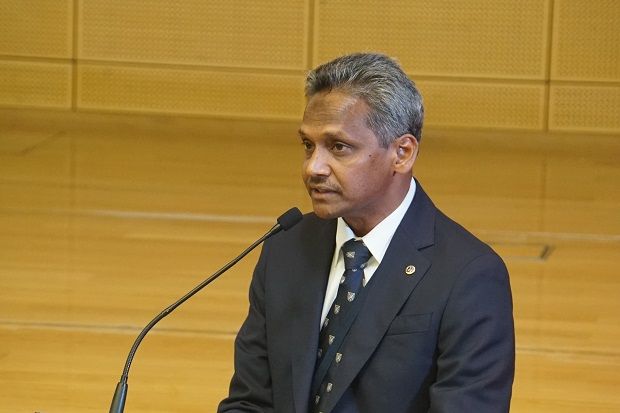THE Financial Education Network (FEN) held a two-day National Financial Literacy Symposium (NFLS) 2022, in conjunction with their annual financial literacy month (FLM) 2022, to discuss solutions surrounding financial literacy and inclusion to elevate Malaysians’ financial capabilities.
With the theme ‘Advancing Financial Literacy Towards Rebuilding Financial Resilience Post-Pandemic’, the symposium brought together researchers, academics and think tanks with policymakers and industry practitioners.
The symposium was co-hosted by Perbadanan Insurans Deposit Malaysia (PIDM) and Bank Negara Malaysia, in collaboration with the Malaysian Economic Association, which aims to generate new ideas towards achieving the strategic outcomes envisioned in the Financial Sector Blueprint 2022 - 2026 and the National Strategy for Financial Literacy (2019 - 2023).
During the keynote address for NFLS 2022, Bank Negara Malaysia (BNM) deputy governor Datuk Abdul Rasheed Ghaffour said that “insights from the research are important to develop targeted interventions that address the financial education needs among our population.”
“Therefore, findings from the Financial Capability and Inclusion Demand Side (FCI) Survey 2021 have provided valuable input in refocusing the implementation of National Strategies for Financial Literacy 2019 - 2023.”
The FCI Survey 2021 was recently published in BNM’s first half 2022 Financial Stability Review, revealing that the pandemic has positively nudged Malaysians to navigate their financials more carefully during difficult periods, although many struggled to take appropriate steps to gain control of their situation.
According to PIDM chairman Tan Sri Dr Rahamat Bivi Yusoff, the symposium has uncovered a wealth of research on financial literacy.
“We are seeing some valuable insights that can help policymakers, industry practitioners and proponents of financial literacy to develop more effective strategies in delivering sustainable and impactful financial education to Malaysians,” she said.
The NFLS 2022 was held as a catalyse research on financial literacy to bridge theory and practice, bringing more evidence-based approaches to policy making and strategy implementation to achieve the outcomes envisioned.
That said, the symposium featured a range of speakers, moderators, panellists, including senior representatives from FEN, folks from the financial industry, academia and think tanks, as well as international participation from the Money and Pensions Service United Kingdom, Behavioural Insights Team, as well as other multilateral institutions such as the Alliance for Financial Inclusion and the World Bank Group.
Prior to NFLS 2022, a call for papers were conducted where they received 62 research abstract submissions from local and international researchers.
This list was shortlisted to 20 papers covering various dimensions of financial literacy, including consumer experiences from the Covid-19 pandemic, the nexus of financial literacy policy and financial inclusion, financial behaviours of youths and millennials, as well as digital financial literacy.
These 20 selected papers will be accorded with an opportunity to be published in a special edition academic journal, while top three papers were selected and awarded for their efforts including:
> ‘Does Financial Literacy improve Financial Inclusion in Developing Countries? A Nonlinearity and Quantile Regression Analysis’ by Abd Rahim Md Jamil, Law Siong Hook, and Mohamad Khair Afham (Universiti Putra Malaysia, Malaysia)
> ‘The Impact of Classroom Financial Education Program: An Experimental Study Among Low Self-Control Young Adults by Amer Azlan Abd Jamal’ (Universiti Malaysia Sabah, Malaysia), Karen Rowlingson (University of York, United Kingdom) and Lee Gregory (University of Nottingham, United Kingdom)
> ‘Supporting SMEs Financial Resilience during Crises: A Framework to Evaluate the Effectiveness of Financial Literacy Programs Targeting SMEs’ by Dalal Aassouli (Hamad bin Khalifa University, Qatar) and Habib Ahmed (Durham University, United Kingdom).








